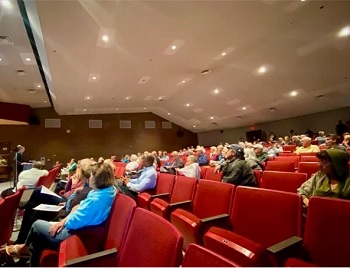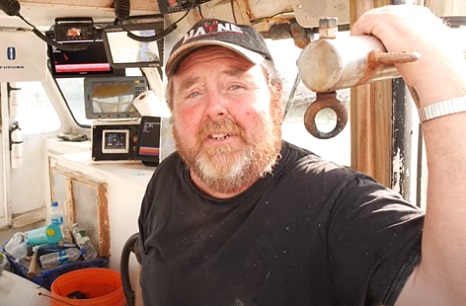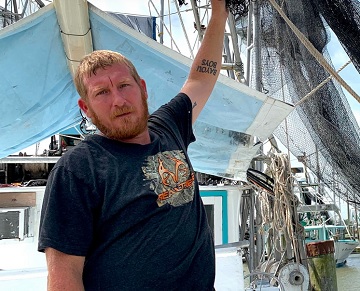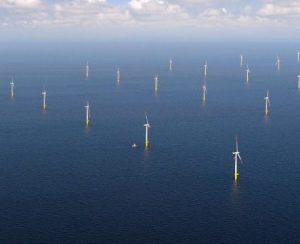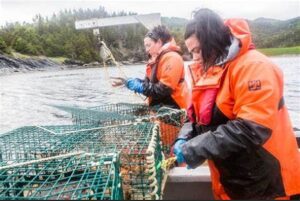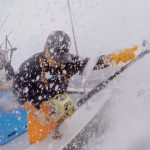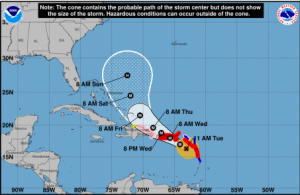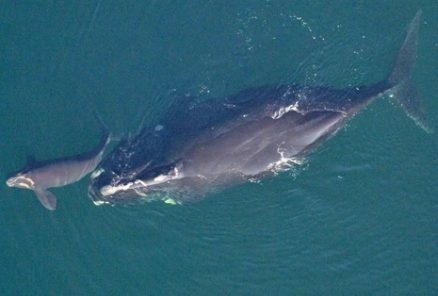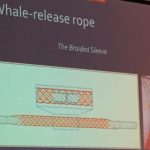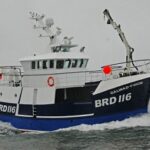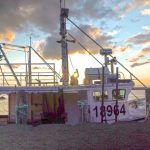Tag Archives: offshore wind farms

Draft North Atlantic Right Whale and Offshore Wind Strategy Announced
As the Bureau of Ocean Energy Management (BOEM) has ramped up offshore wind development to meet the Biden-Harris administration’s goal of generating 30 gigawatts of offshore wind by 2030, the question of how the expansion of offshore wind energy could affect the critically endangered North Atlantic right whale (NARW) has come under close review. To help address this question and support the recovery of endangered NARW and the responsible development of offshore wind energy, BOEM and the National Oceanic and Atmospheric Administration’s National Marine Fisheries Service (NOAA Fisheries) developed a joint Draft North Atlantic Right Whale and Offshore Wind Strategy (the Draft Strategy). >click to read< 11:29
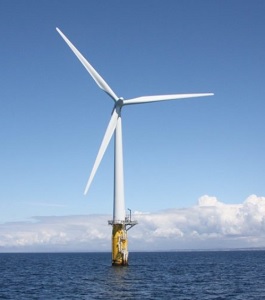
The great US offshore wind-power boom has begun to falter
Plans for massive offshore wind farms that President Joe Biden hopes will power as many as 10 million American homes by 2030 are starting to wobble. On Monday, New Jersey utility Public Service Enterprise Group Inc. said it’s deciding whether to pull out of Ocean Wind 1, a proposed project in the Atlantic Ocean that would generate 1.1 gigawatts – enough for 500,000 homes. Less than two weeks earlier, New England utility Avangrid Inc. said its similarly sized Commonwealth Wind project was no longer viable because of higher costs and supply chain woes. Offshore wind projects are “facing a number of headwinds,” Soaring inflation, rising interest rates and supply chain snarls around the world are threatening to hobble the offshore wind boom that both federal and local policy makers have been planning for years off the US East Coast. >click to read< 13:28
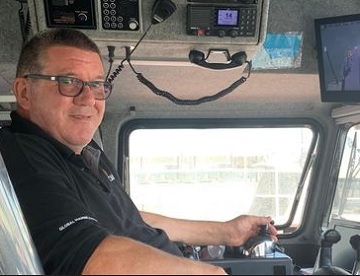
Great Yarmouth fisherman swaps shrimp for offshore wind
From inshore shrimper to head skipper on offshore wind crew transfer vessels, Wally Saunders turned generations of his family’s love and living from the sea to a future in the industry harvesting wind to power the UK’s future. For generations, the Saunders family looked to the sea off Great Yarmouth and Gorleston for their living. In all weathers, great grandfather, grandfather, father and sons hauled shrimp, herring, cod and Dover sole onto boats owned by the family through the decades, and on to the deep-sea trawlers, fishing smacks and herring drifters where the older generations worked as deckhands and mates. >click to read< 10:16
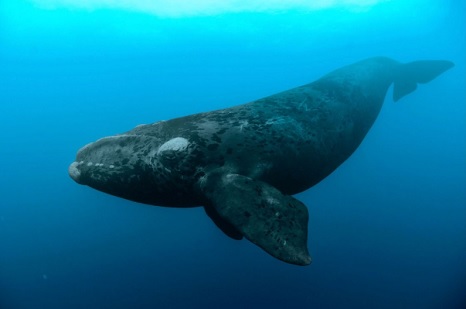
No Fluke: Locals Fight Offshore Wind Power Project That Threatens Mass Whale Wipeout
If the wind industry gets its way, it’s curtains for the already endangered Atlantic Right Whale. Taking giant industrial wind turbines offshore threatens whales of all shapes and sizes, including the Atlantic Right Whale. Whales already have plenty of offshore industrial activity to contend with. However, where oil and gas extraction, international shipping, and commercial fishing have obvious embodied economic benefits, the only economic benefit derived from wind power is the subsidies it attracts. No subsidies. No wind power. It’s that simple. >click to read< 12:55
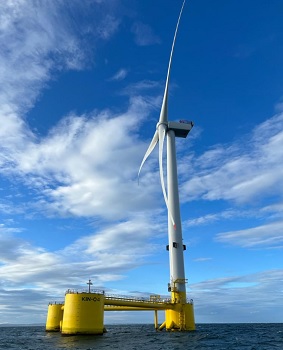
Irish Fishing Industry calls for Urgent Consultation on Offshore Wind Farms
Representatives from the Irish fishing industry in Donegal and around Ireland say they fear being “displaced losers” in the development of offshore wind farms. The Irish fishing industry say they have a right to be consulted about offshore wind farms because it affects their livelihoods. Aodh, who is chief executive of the Killybegs-based Irish Fish Producers Organisation (IFPO), said needs to co-operate to reduce fossil fuels but “co-operation works both ways and we are not being consulted.” >click to read< 11:36

Save Right Whales from Radical Environmentalists Who Exploit Them
Americans agree with protecting the endangered Northern Atlantic right whale. But true conservation efforts don’t necessitate displacing lobstermen and recreational anglers in the process. With fewer than 350 whales left, ambulance-chasing opportunists masquerading as conservationists conveniently swoop in on the whale’s behalf only to leave economic —and environmental—destruction in their paths. This endangered whale requires protection from radical environmentalists who exploit them. Preservationists purporting to care about its well-being, however, distort the threats posed to the whales. >click to read< 08:06

Island’s fate tied to fishing, residents say: “I think we’re being pushed out”
Make way for windmills. That was one of the worries aired by Deer Isle-Stonington fishermen and small business owners who attended a breakfast economic development meeting at the Stonington town office Friday. A few residents and small business owners said they think the fishing industry is being pushed out to make room for windmills, thus further advancing green energy agendas that Governor Janet Mills and the federal government have adopted. Mike Shepard said he started fishing at age 10 in a “little outboard.” “I’m almost 70 now,” the lobsterman said. “I fished all my life out here. All that time I’ve been fishing. I’ve never seen a whale. It has nothing to do with the whale, it has to do with what they want to do with our waters out here. They want to go green and it’s killing the lobster industry, which is our way of life.” >click to read< 19:36
Video – Outside Lobbyists Vs. Hard Data on the Right Whale Issue in Maine
For those who cannot commit to a 20+ minute presentation on the war on our fishermen: Can you spare just 5 minutes? Here is a scene from the new short film “2023” which includes some details that have been missing from your local newscasts. Click the image to watch, 12:18
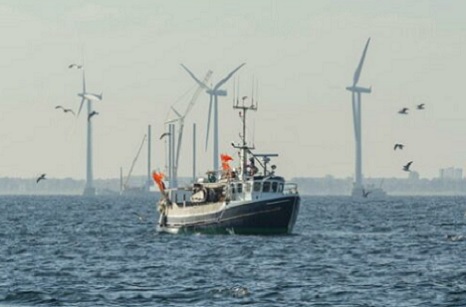
Shetland fishing industry ‘flung by the wayside’ for offshore wind farms
Addressing a session during the parliamentary Westminster Energy, Environment & Transport Forum policy conference, Shetland Fishermen’s Association (SFA) executive officer Daniel Lawson said his industry had “big concerns” over the UK’s plans for renewables off the islands. “All of the things we saw with the onset of oil, protection, partnership, working consideration, consultation, compensation, they’ve all been largely abandoned so far in this rush towards offshore wind development,” he told delegates. Mr Lawson said the organisation, which represents 115 member vessels, was dismayed by news of the latest round of offshore wind licensing as part of the Crown Estate Scotland’s ScotWind clearing process. >click to read< 09:55
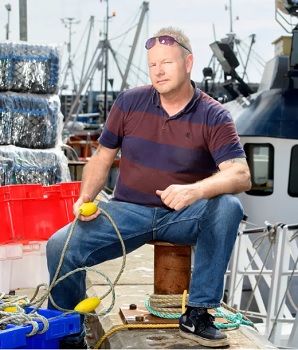
Offshore wind could blow us out of the water say Cornish fishermen
As the fishing boat motors gently out of Newlyn’s harbour, the sky is clear and the sea is millpond-flat. Below the surface, the clear waters are teeming with life; Newlyn, in south-west Cornwall, is home to one of Britain’s largest trawler fleets, with more than 100 boats regularly landing catches. However, miles out to sea, a storm is brewing. The boats’ fishing ground could end up being squeezed by floating windfarms planned for the Celtic Sea, an area of the Atlantic bordered by Cornwall, south-west Wales, southern Ireland and the north-western edge of France. >click to read< 15:32
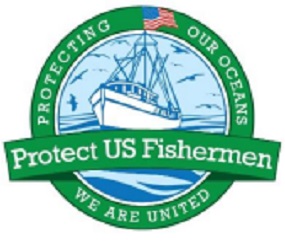
Website shines a light on offshore wind farms
Fishermen, an informal coalition of more than two dozen organizations concerned about the environmental and economic impacts of proposed offshore wind farms in the Pacific Ocean, launched a new website on Monday. Visitors to protectUSfishermen.org will find details not only on the current push to place wind turbine farms off the coast of Oregon, but also learn about the sustainable seafood industry and its positive impacts on the economy and food security. For those wishing to gain a broad understanding of the debate surrounding offshore wind, the site provides a comprehensive overview. Those wishing to take a “deep dive” into the issue can click on a variety of links to well-documented studies and positions from credible sources around the world. >click to read< 16:00

US Advances Plans for Offshore Wind in Maine
The U.S. Department of the Interior announced next steps to bring offshore wind energy to the Gulf of Maine. “President Biden has set ambitious goals to address the climate crisis, and in response the Interior Department is taking historic steps to develop a robust and sustainable clean energy future,” said Secretary Deb Haaland. “Today’s announcement for the Gulf of Maine represents one of the many milestones that this Administration has achieved to advance offshore wind development, create good-paying jobs, lower consumer energy costs, while collaborating with our government partners, Tribes and key stakeholders to protect biodiversity, advance environmental justice and safeguard other ocean uses.” >click to read< 15:33
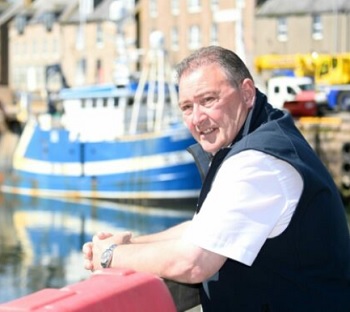
Jimmy Buchan: energy costs will drive fish processors out of business
Mr Buchan has sent a letter to the two candidates vying to become Prime Minister, Liz Truss and Rishi Sunak, ahead of their campaigning visits to Scotland tomorrow. In the letter Mr Buchan, the chief executive of the Scottish Seafood Association, warned that on top of Brexit and Covid, escalating fuel costs were having a “devastating impact on our ability to remain viable”. Meanwhile, the body representing the fishing industry has also issued an open letter to the prospective PMs. Elspeth Macdonald, chief executive of the Scottish Fishermen’s Federation, highlighted the need for “fairer decision making” over use of the seas in order to prevent fishing becoming “collateral damage” ahead of the spansion of wind farms. >click to read< 15:21
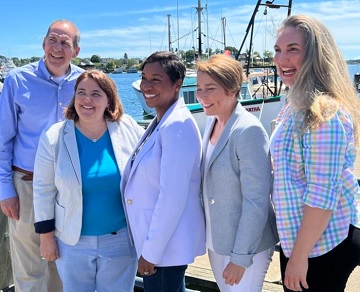
Candidates for governor, AG, tackle fishing industry concerns
Representatives of the Gloucester fishing industry caught the ears of Democratic candidate for governor Attorney General Maura Healey, and a Democratic candidate for attorney general, Andrea Campbell, during a meeting at the Gloucester House Restaurant on Rogers Street around noon before a campaign canvass kickoff. The pair heard concerns about the high cost of fuel and offshore wind, among others. “The price of fuel is killing us right now,” said fisherman Joe Orlando, president of Northeast Fishery Sector II. “I can’t even imagine. How much does it cost?” Healey asked. Orlando said the cost went from $2,000 to $6,000. Healey said it is important for the state to support the fishing industry economically, culturally and historically. >click to read< 10:38
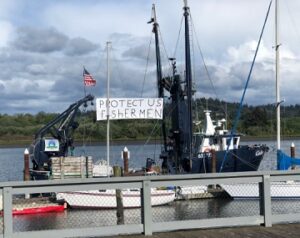
Oregon Senators, Governor responds to offshore wind farms concerns during clean energy tour
During a clean energy tour of Oregon, KATU questioned the US Secretary of Energy, Jennifer Granholm, Oregon Senators Ron Wyden, Jeff Merkley and Governor Kate Brown on issues surrounding wind farms slated for the Southern Oregon Coast. “It’s too early honestly we don’t know it’s a lot like the wave energy technology it’s still being built it’s still being created,” said Oregon Gov. Kate Brown when asked if she would advocate funding for preliminary wind farm testing ahead of federal leases planed for Southern Oregon offshore areas. “We really need to understand all of the impacts upfront before we rush into this,” said Heather Mann Executive Director of the Midwater Trawlers’ cooperative. >click to read< 09:56

Australia: Commercial fishers eyeing compensation as six offshore wind farm zones get green light
Trawl fishers have ramped up calls for compensation following the federal government’s announcement that it will establish six offshore wind energy zones. Waters off Gippsland, Portland, the Hunter Valley, Illawarra, northern Tasmania, Perth and Bunbury have been earmarked for development. But fishers are concerned they will be excluded from the sections of the ocean where the turbines are built. The most progressed wind farm proposal is the Star of the South project in Gippsland. “The problem we have is that the federal government has already given out rights … to go commercial fishing. >click to read< 07:59
Australian offshore wind farms get green light in landmark announcement – >click to read<

North Atlantic right whales at Risk – Offshore wind farms bring a lot of unknowns
The race is on to get offshore wind farms built off the U.S. East Coast, and North Carolina is one of the leading states with three projects planned for the Tar Heel Coast, two roughly 20 miles south of Bald Head Island in Brunswick County and one, which will be built first, about 27 miles off Kitty Hawk on the Outer Banks. And they might not be the last for the state’s coastal waters. While visiting a National Governors Association event in Wilmington last month, Gov. Roy Cooper was asked if he’d support more offshore wind built off the N.C. coast. “Absolutely,” he responded emphatically. >click to read< 09:26

Joel Dejean: Turn the Tide Against the Texas Gulf Wind Farms
The Biden Administration announced last week that the first offshore wind farms in the Gulf of Mexico will be positioned off the coasts of Texas and Louisiana. The first selected area was described approvingly in the July 22 issue of The Texas Tribune by Mitchell Ferman. It is “24 nautical miles off the coast of Galveston, covering 546,645 acres, bigger than the city of Houston, with the potential to power 2.3 million homes, according to the U.S. Interior Department’s Bureau of Ocean Energy Management.” The other project, praised in Houston Chronicle headlines, will be near Port Arthur [Texas] covering 188,023 acres, 56 miles offshore, with power potential estimated at 799,000 homes. Public hearings are to start in August. Two issues come immediately to mind. First, in the description of both projects, the phrase ”potential to power” is used. The figures given represent 100% potential productive capacity, but the wind usually delivers only 30%, and often even less. >click to read< 11:25
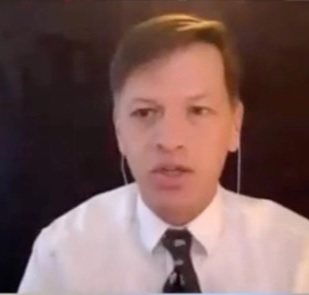
Canned climate official was right, consumers suffer the most
Remember David Ismay? He was the state’s $130,000 a year climate change czar, a mini-John Kerry who was forced to resign after he was inadvertently caught telling the truth. He revealed how the Green anti-fossil-fuel movement wants to punish you to save the planet. Ismay, speaking to a virtual meeting of the Vermont Climate Council last year on gas and oil emissions, said, “Sixty percent of our emissions that need to be reduced come from you – the person across the street, the senior on fixed income.” If that was not damaging enough, he added, “There is no bad guy left, at least in Massachusetts, to point the finger at, turn the screws on and, you know, break their will so we have to break your will. I can’t even say that publicly.” But. you did! >click to read< 14:45
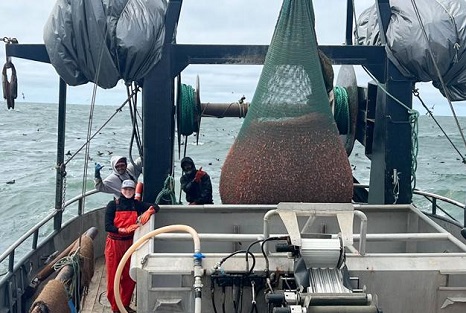
Floating offshore wind generator proposals worry fishing industry
From her home overlooking Yaquina Bay on the Oregon coast, Kelley Retherford can watch as commercial fishing boats arrive at the nearby Port of Newport, delivering their catch to one of several seafood processors that line the waterfront. Saltwater is in her family’s blood, she said. Along with her husband, Mike, and their four adult children, they own and operate four fishing trawlers, harvesting everything from Pacific whitefish and hake to pink shrimp and Dungeness crab. That way of life, however, may be disrupted by a growing interest in offshore wind generators to help achieve ambitious government-mandated zero-carbon energy goals. photos, >click to read< 18:50

Warning of ‘environmental devastation’ of offshore wind farms
A campaign group has accused the offshore wind industry of creating “environmental devastation”, and claimed that the impact will become greater as more projects are developed. Scotland Against Spin took issue with a Scottish Government survey which found that a majority of people approve of offshore wind farms. Those living in coastal areas cited the economic benefits of offshore, according to the study, while the effects on tourism “could be minimal”. Industry body Scottish Renewables said the findings indicated that most members of the public recognise the social and economic importance of the offshore wind sector. However, Scotland Against Spin chairman Graham Lang maintained that offshore developments are posing a threat to seabirds, including puffins and kittiwakes, and to fish species such as haddock, cod and mackerel. >click to read< 20:19
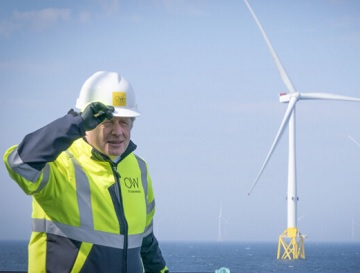
Your favourite takeaway could set you back following green-energy expansion
Fish and chip fans fear the future of their favourite takeaway, as widening offshore wind farms will soon be constructed in precious fishing territory. Fishermen across the country have criticised the Prime Minister’s plans to increase the number of wind turbines in the sea, meaning over half of their legal fishing territory could be lost by 2050. A damning report outlined in the Spatial Squeeze in Fisheries report indicated how 56 percent of Scottish waters could become prohibited for fishing boats. The Prime Minister’s plans would see fish go uncaught, leaving restaurants no choice but to rely on importing. One chip shop in Kent recently shut down as its owner refused to charge £14 per person for a portion of Britain’s most famous dish. >click to read< 15:27
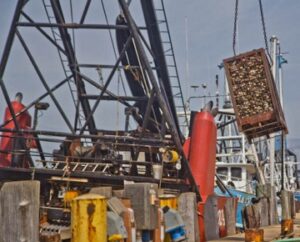
Offshore wind farms could reduce Atlantic City’s surfclam fishery revenue up to 25%
New research from Rutgers University shows Mid-Atlantic surfclam fisheries could see revenue losses from planned offshore wind farms, at least in the short- to medium-term after the development takes place. The data is sure to fuel opposition from the fishing industry to the Biden administration’s rapid offshore wind development along the New York, New Jersey, and Delaware coasts. President Joe Biden has a goal of generating 30 gigawatts of wind energy by 2030 as part of his effort to tackle climate change. Clammers and scallop fishermen fear a shrinking patch of fishable ocean will lead to the collapse of the industry. >click to read< 14:03
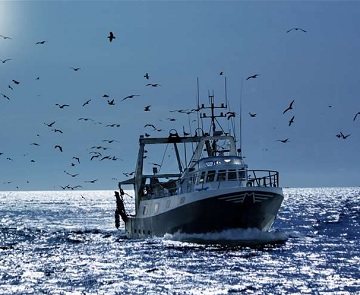
Fishing industry at risk of being ‘put to the sword’ by offshore renewables and MPA’s
The fishing fleet is facing a “truly frightening” future with the prospect of more than half of Scottish waters being off-limits by 2050, a new study has warned. The industry is at risk of being “put to the sword” because of offshore renewable energy developments and the expansion of enhanced marine protected areas, according to the Scottish Fishermen’s Federation (SFF) and National Federation of Fishermen’s Organisations (NFFO). Their report, Spatial Squeeze in Fisheries, produced by the ABPmer consultancy, is described as the first attempt to assess the cumulative impact on commercial fishing of “hugely increased competition for space in the marine environment”. >click to read< 07:55
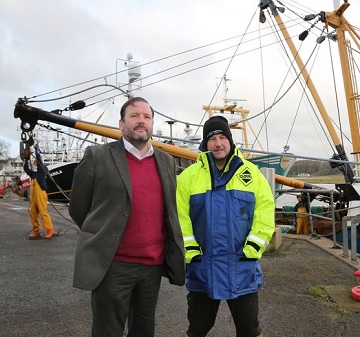
Offshore Wind Industry Wiping Out Crucial Fish Breeding Grounds & Fishermen’s Livelihoods
Britain’s trawlermen are tough, but not invincible. Giant industrial wind turbines and their associated infrastructure have already wrecked once productive fishing grounds, with more under threat. The power cables that connect offshore wind turbines are mesmerising crabs and causing biological harm that affects their ability to migrate and breed; the same phenomenon has just been identified in lobsters. So, little wonder that fishermen are furious that their lives and livelihoods are being sold so cheap to an industry that’s built on lies and runs on subsidies. >click to read the rest< 15:18






